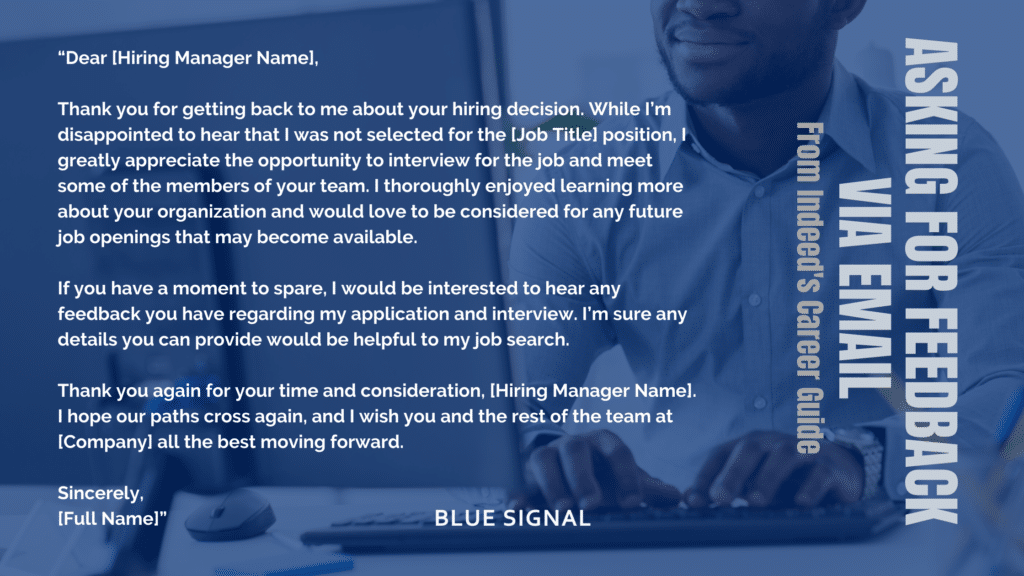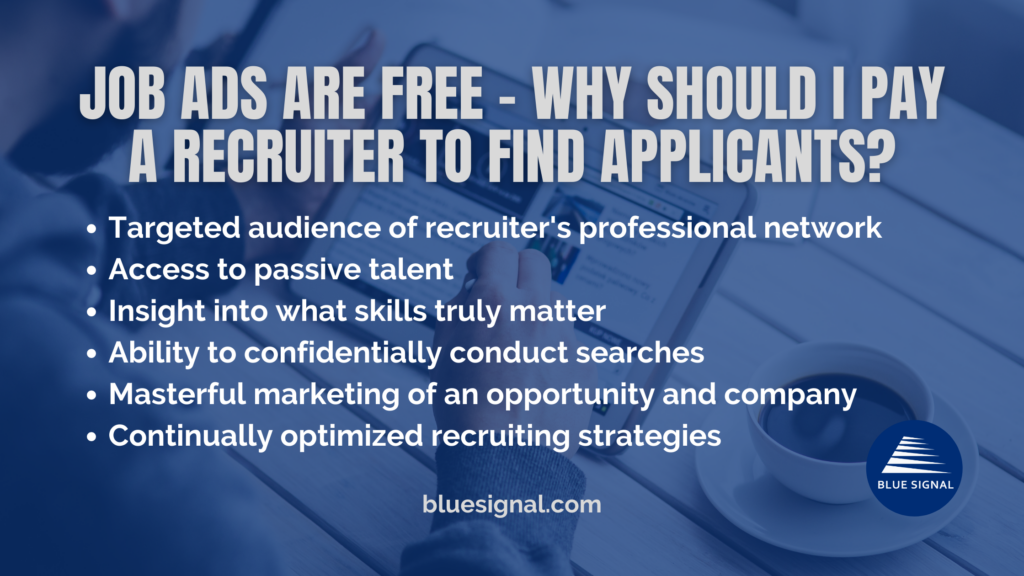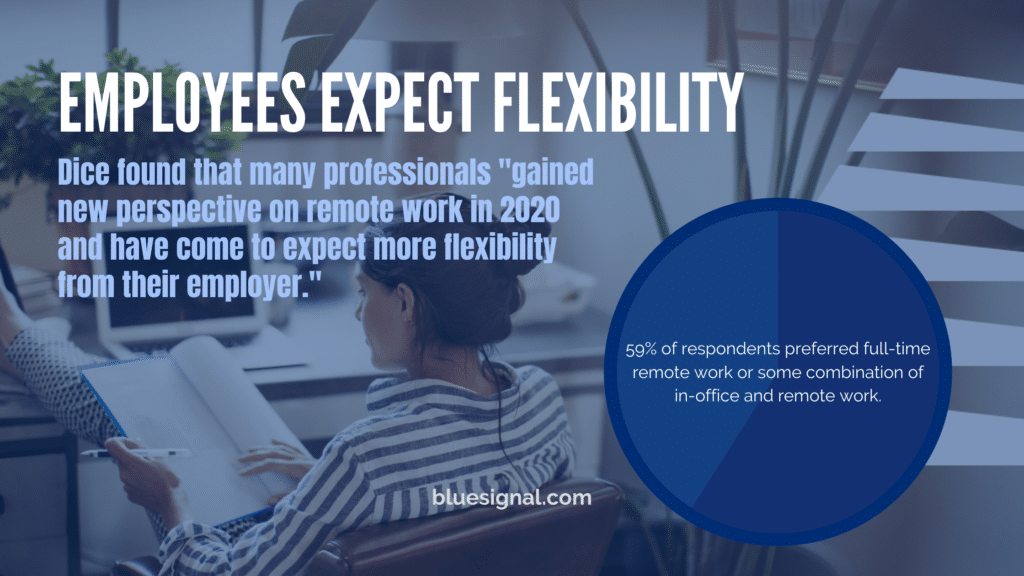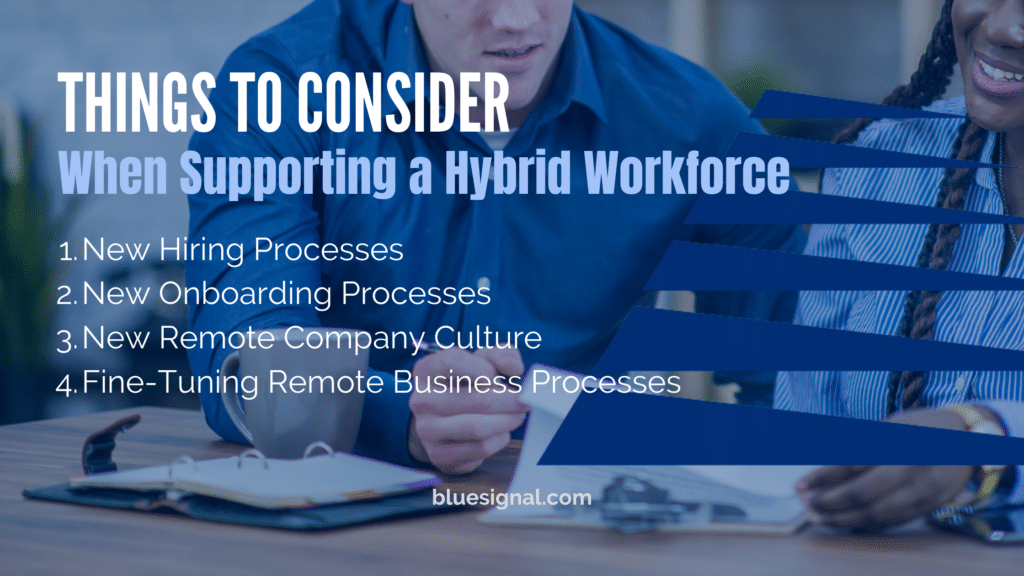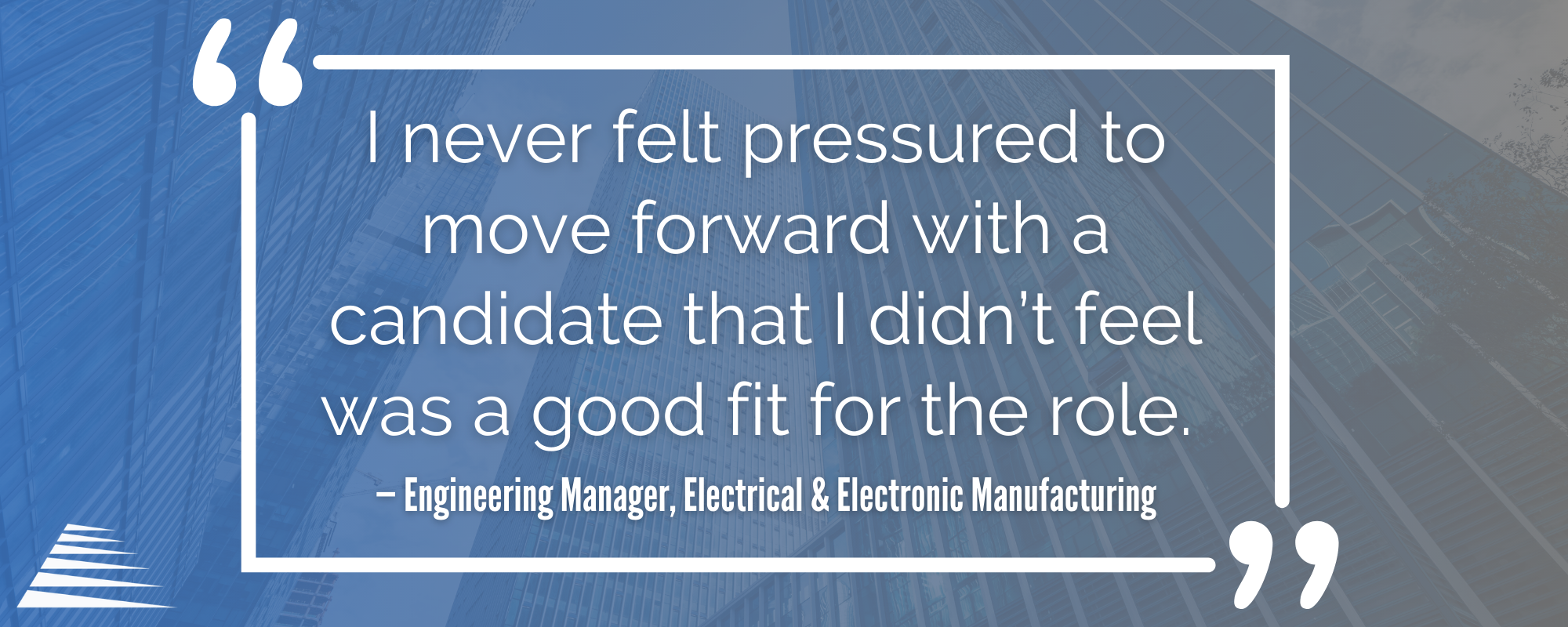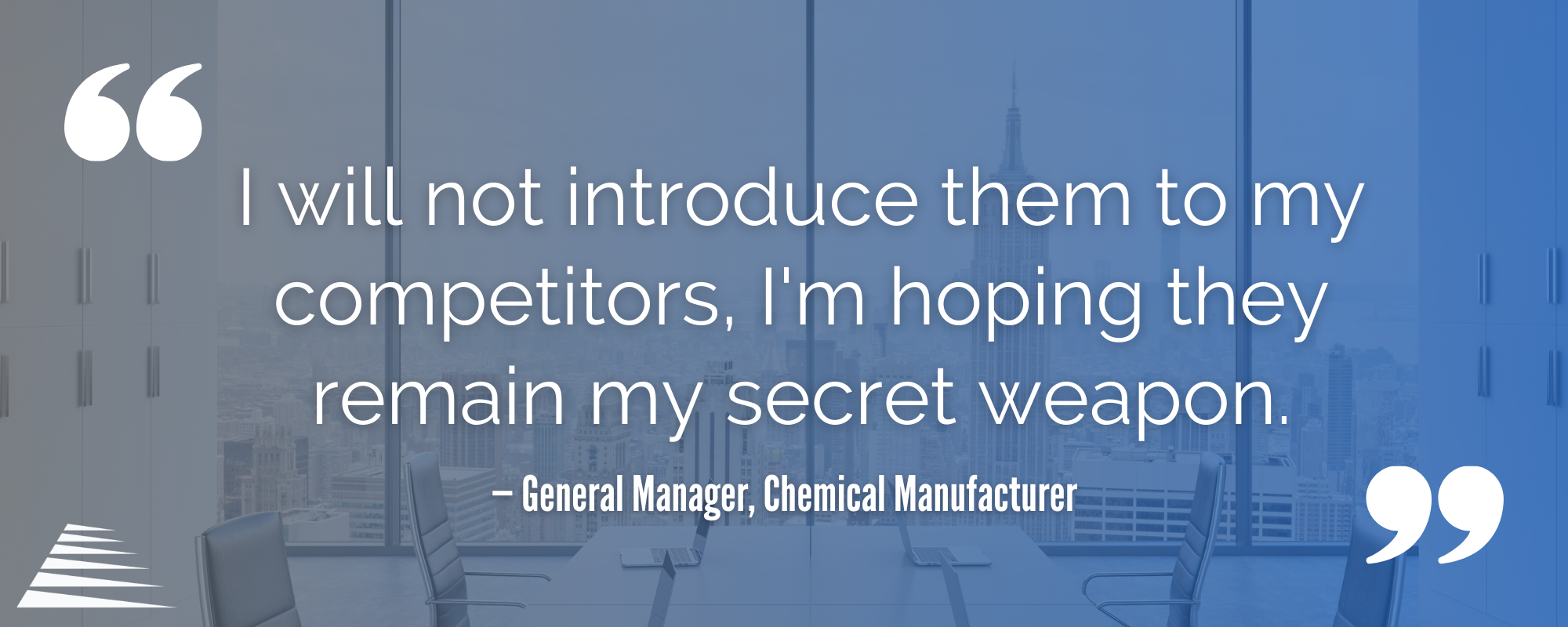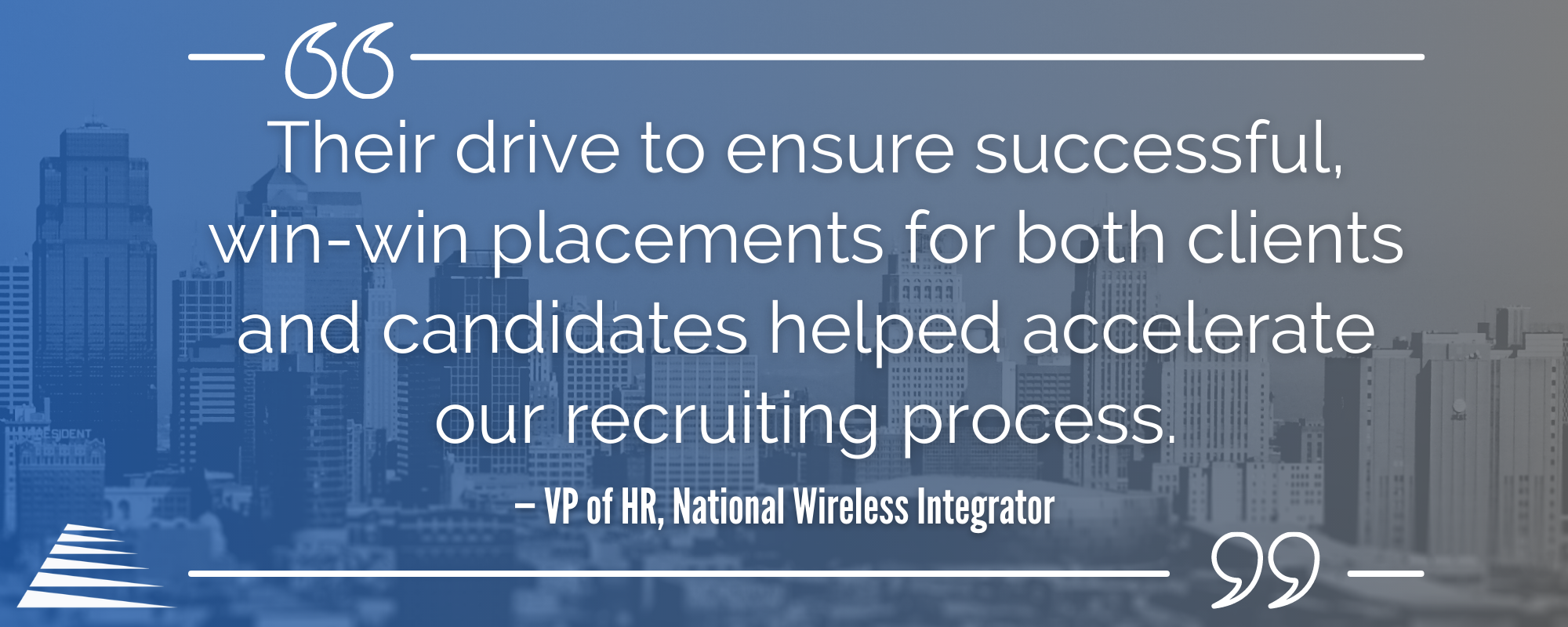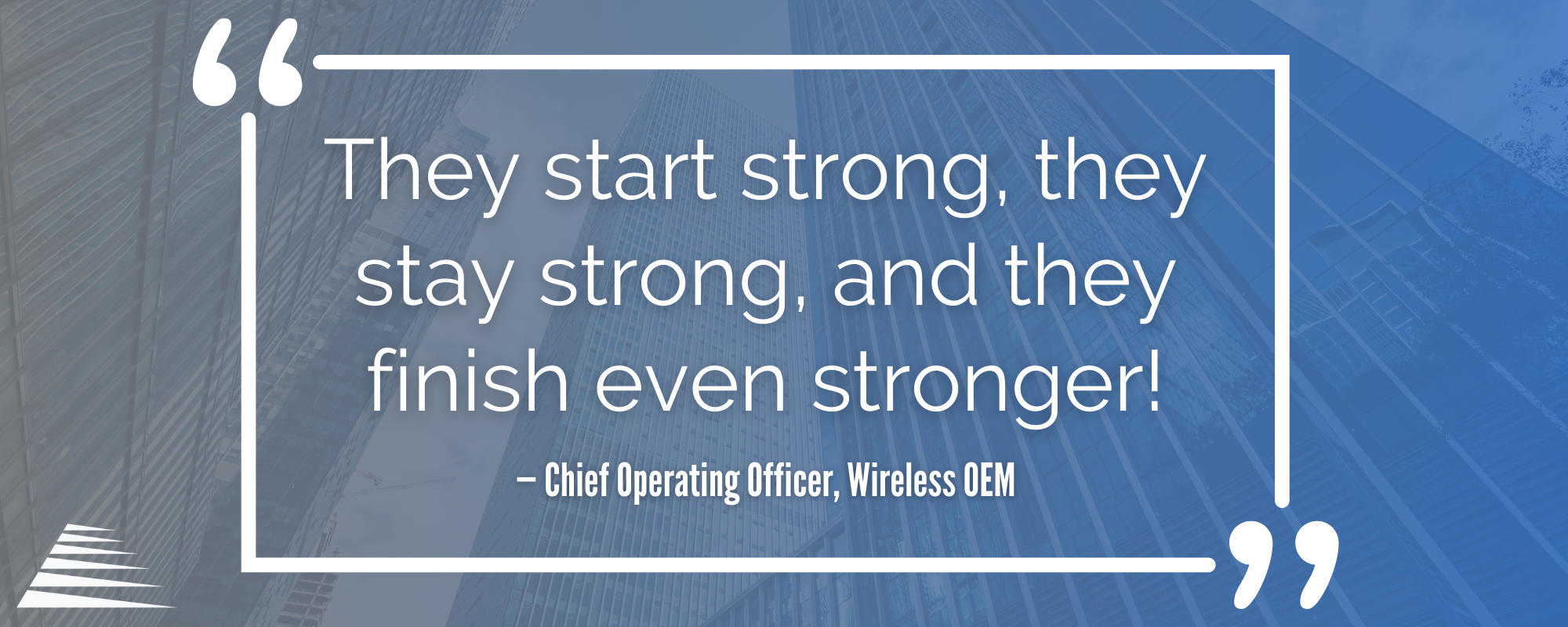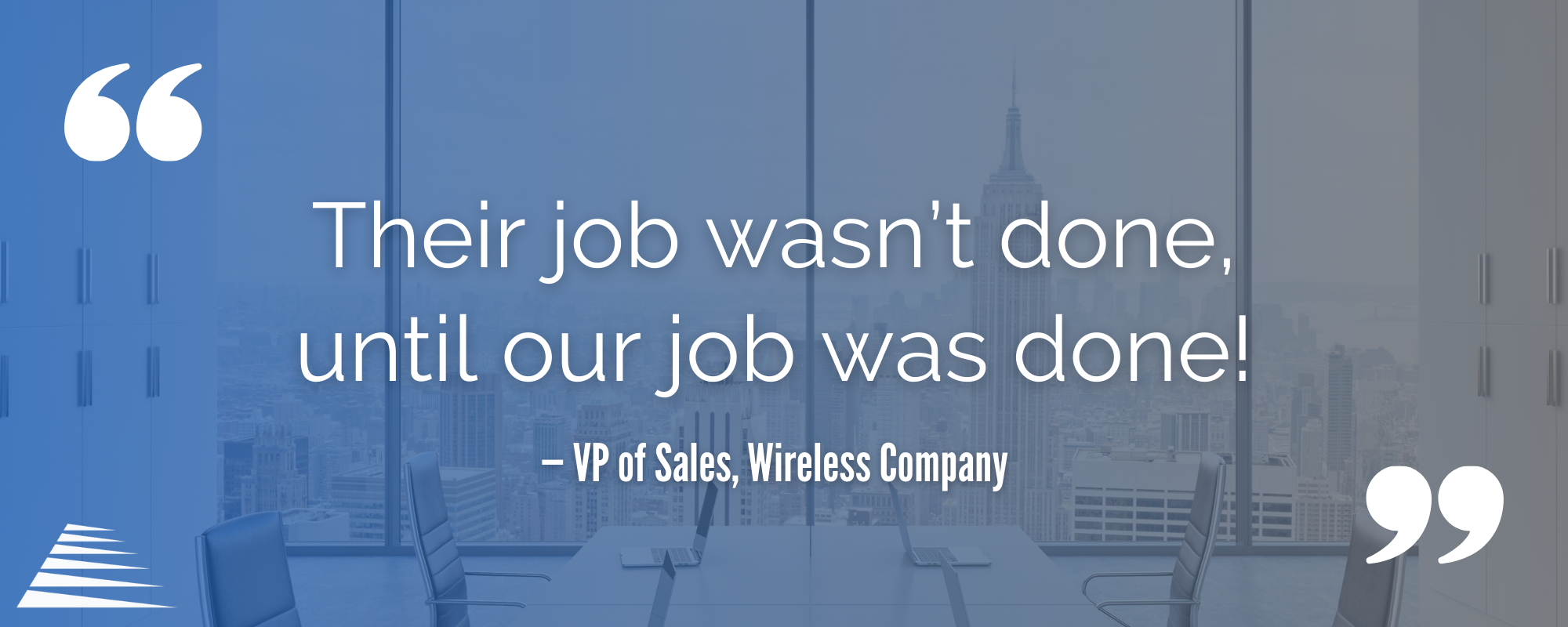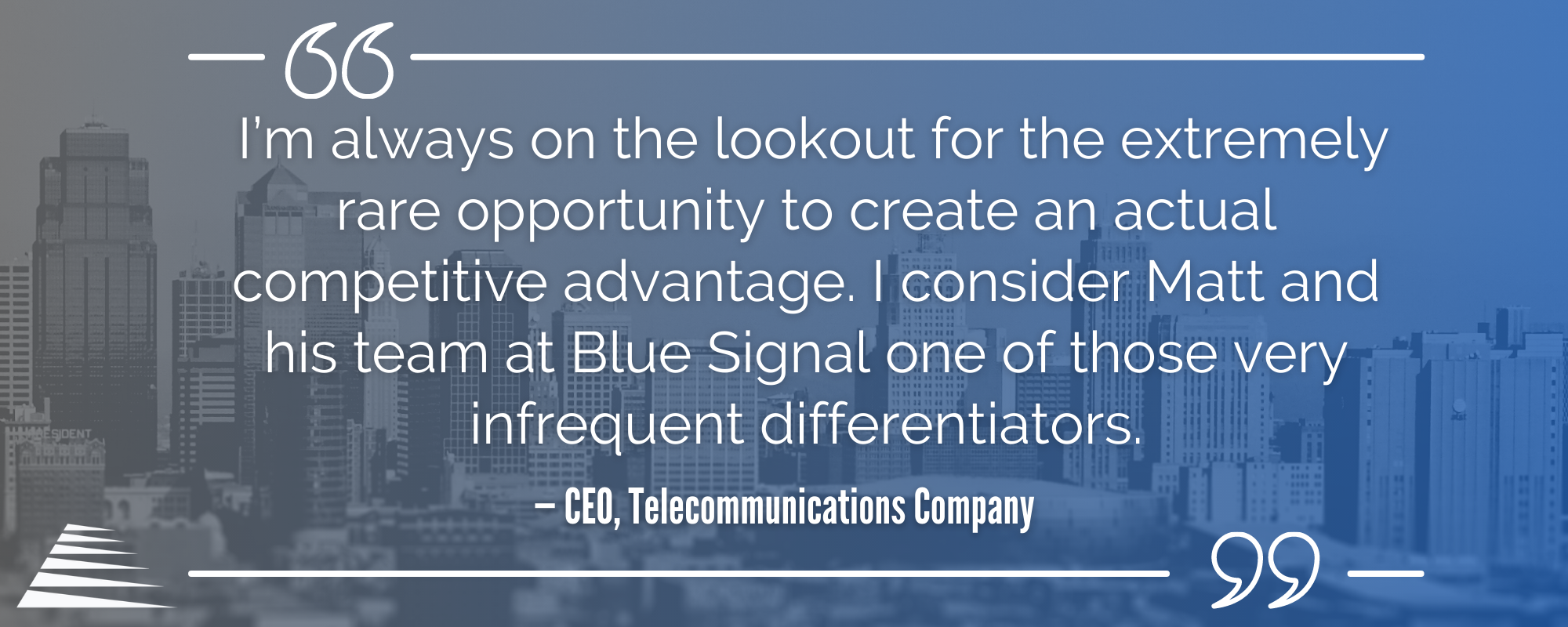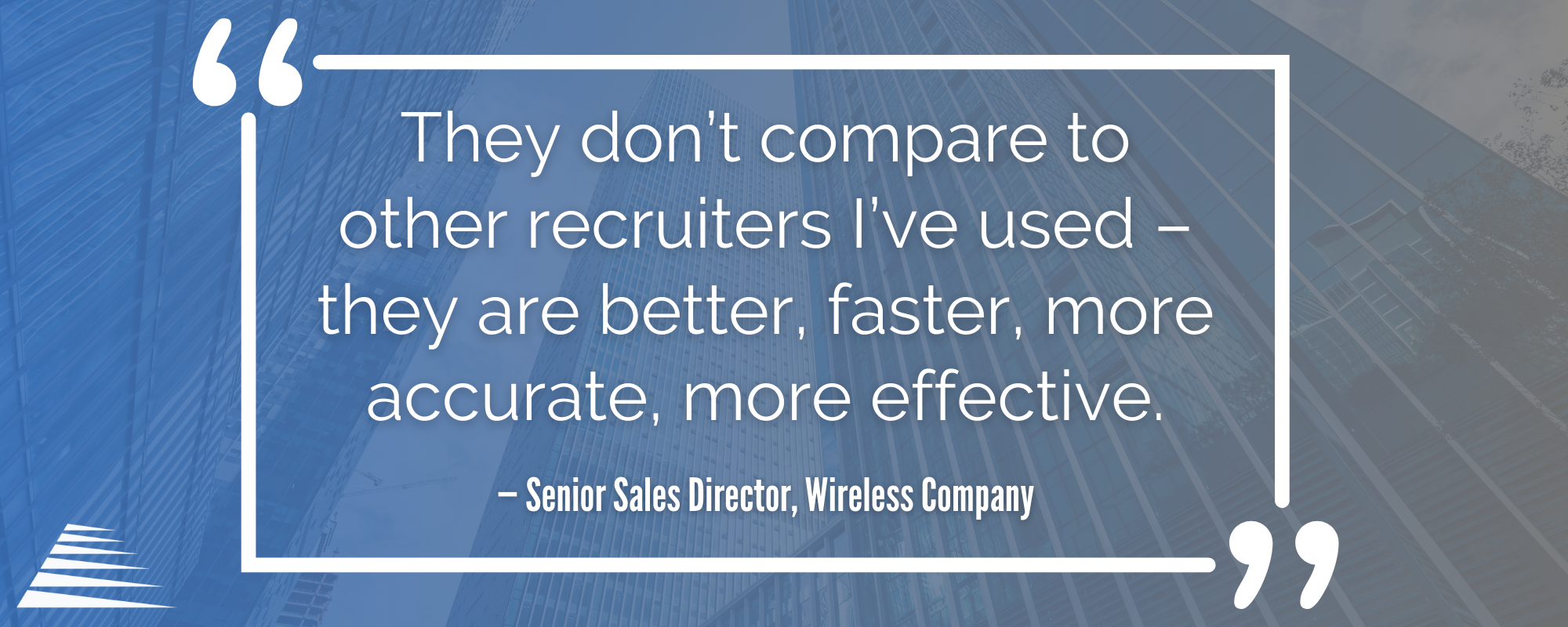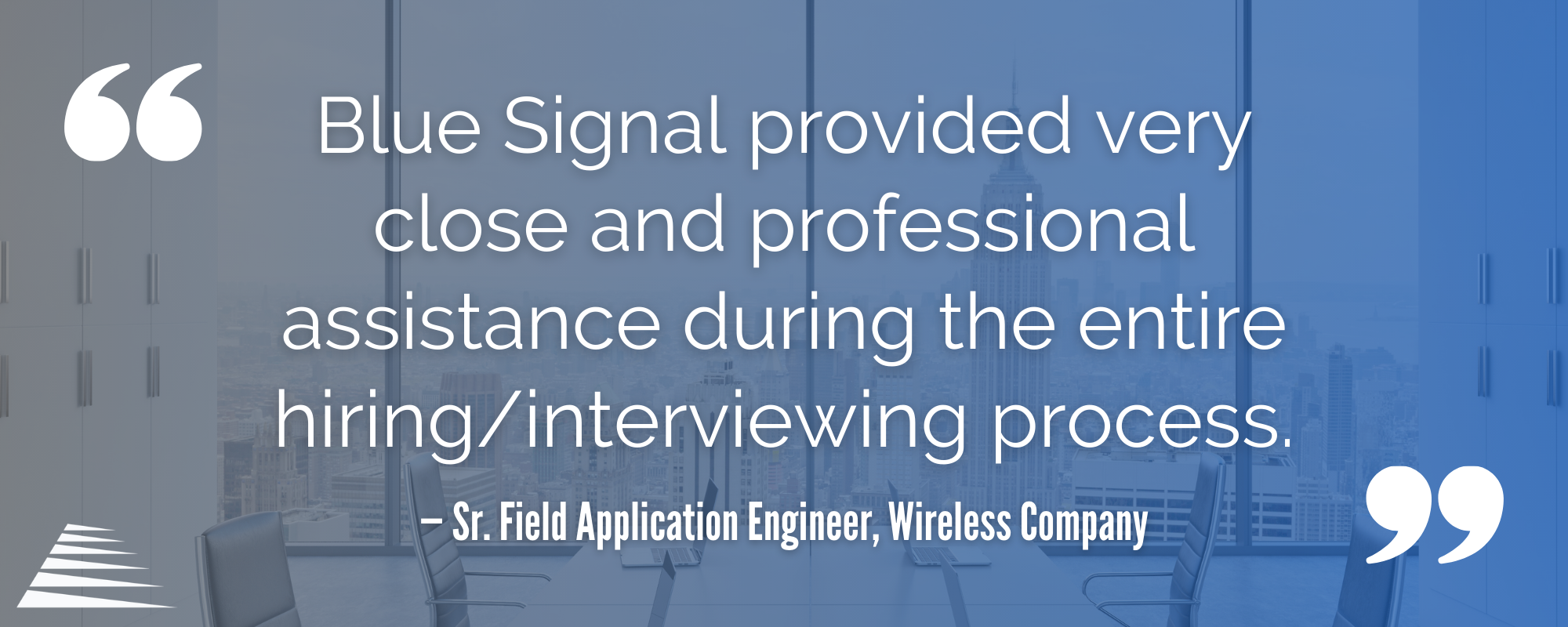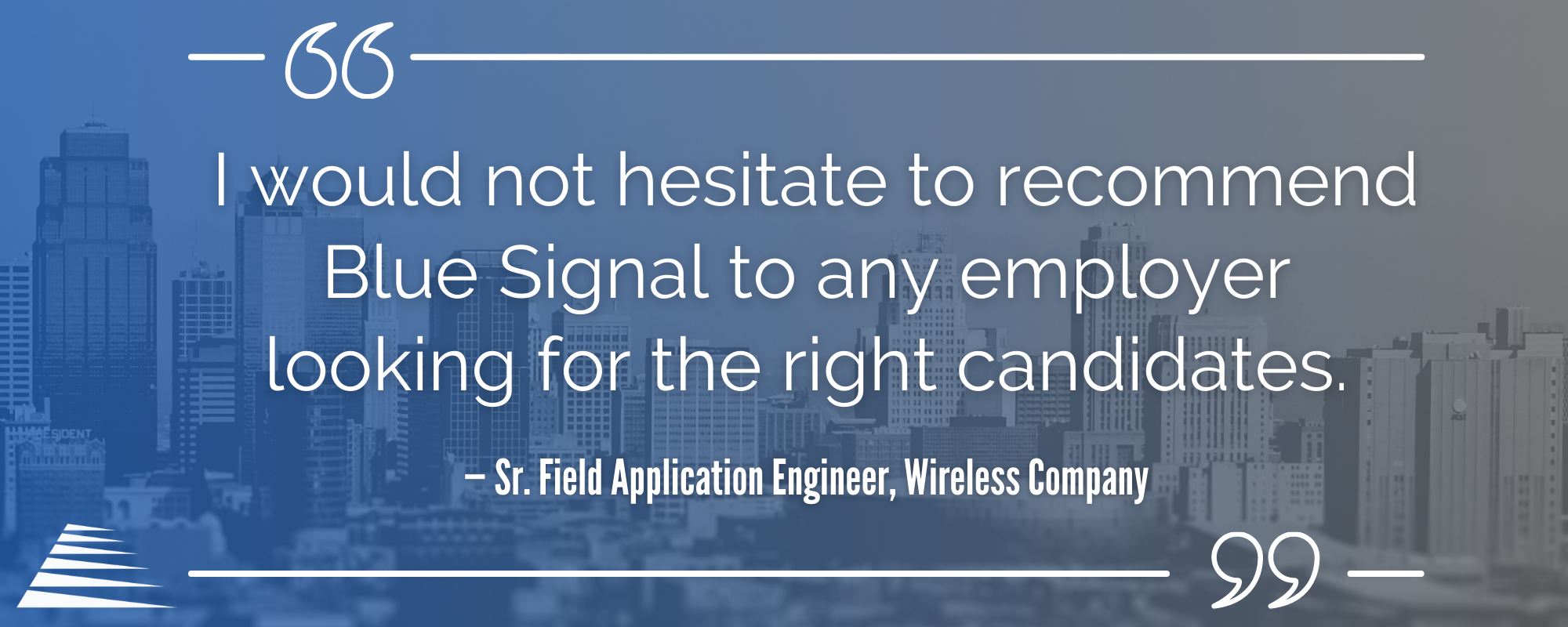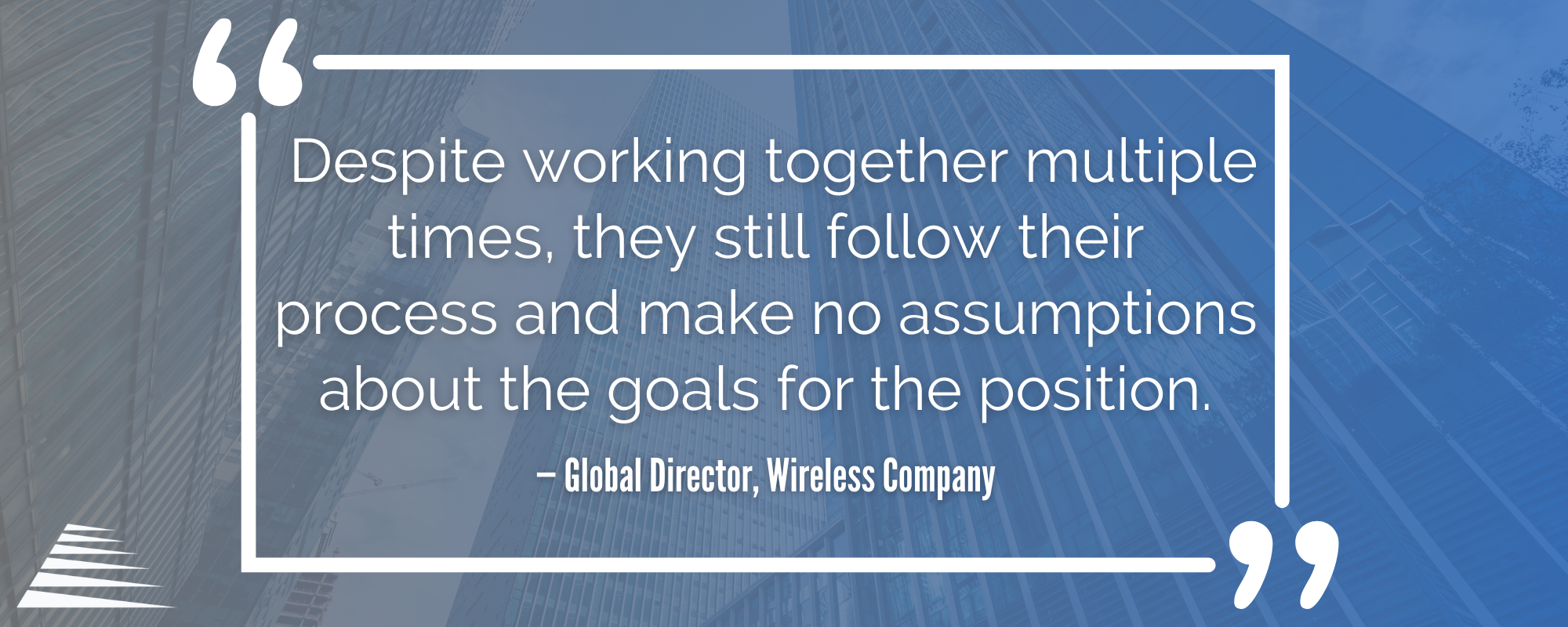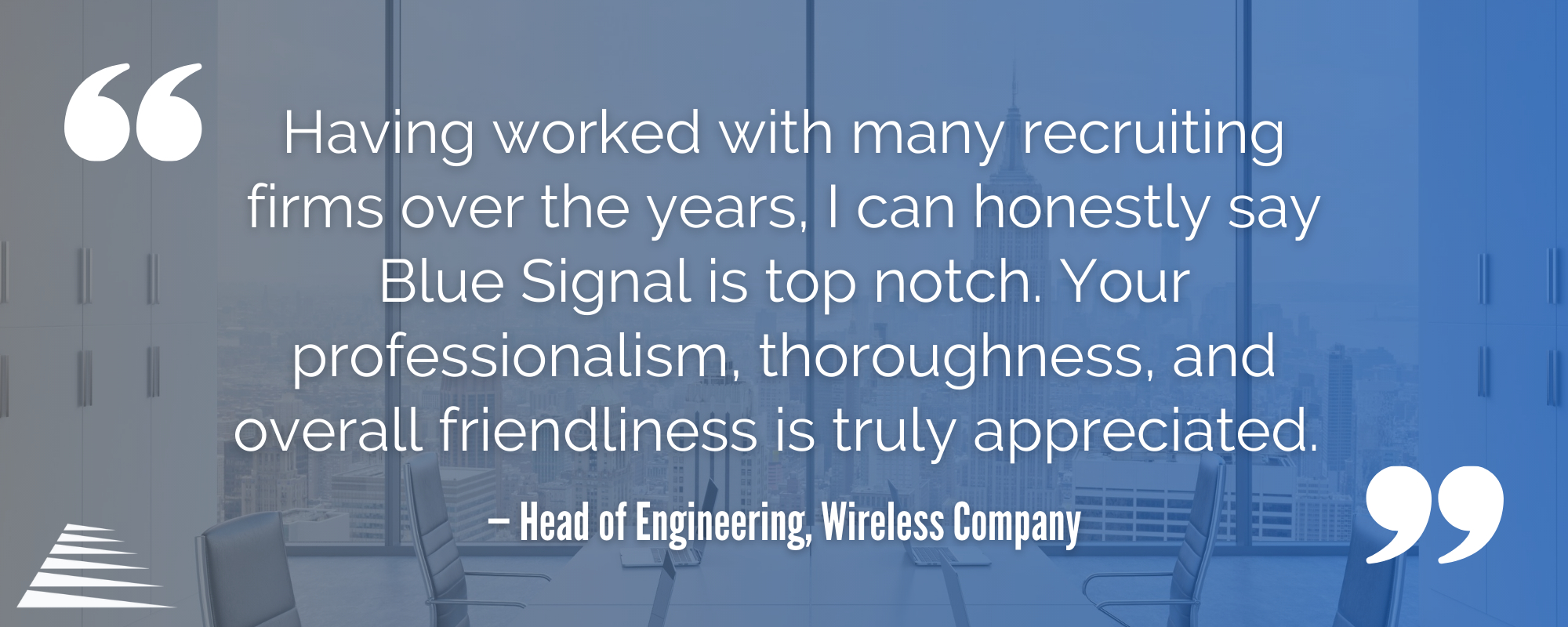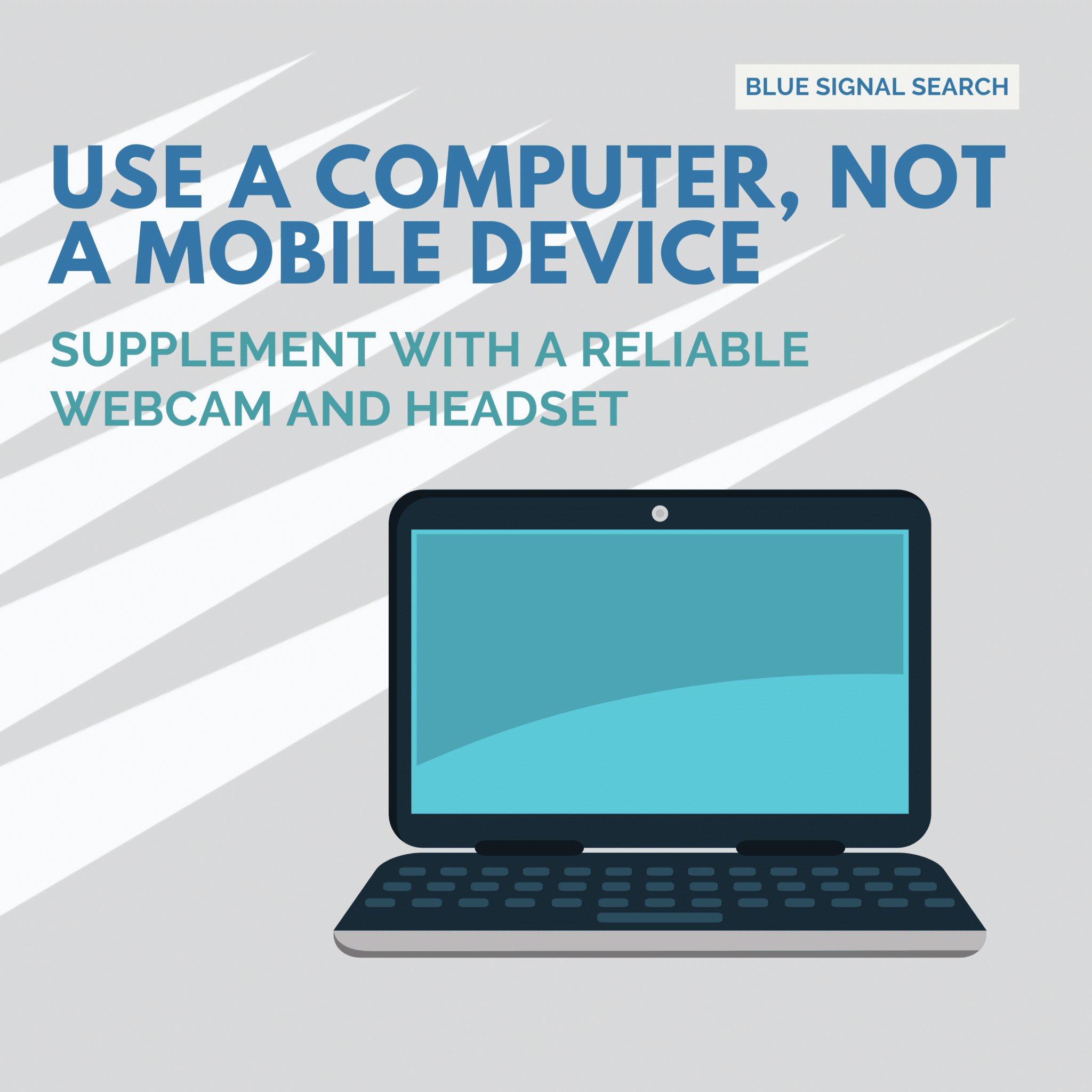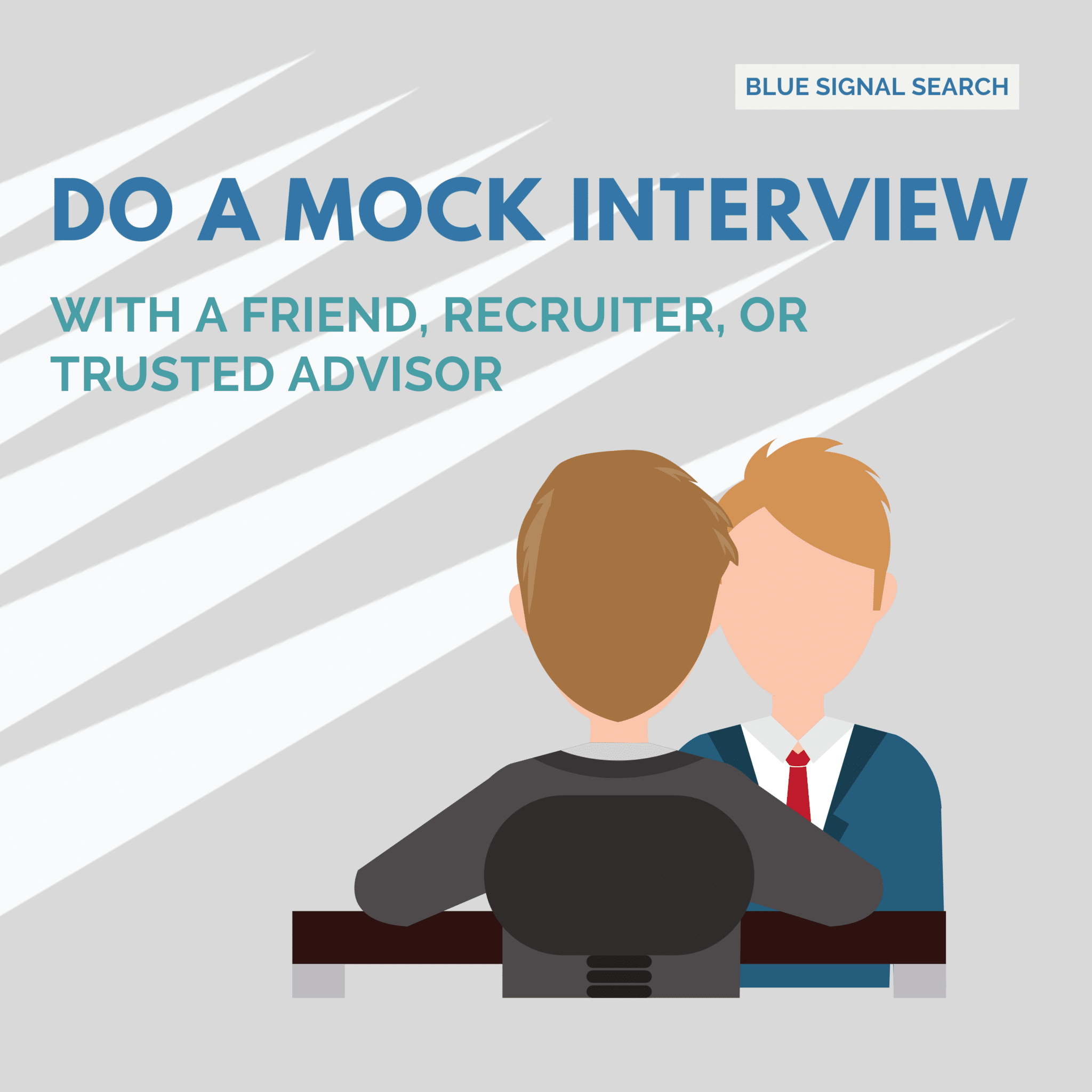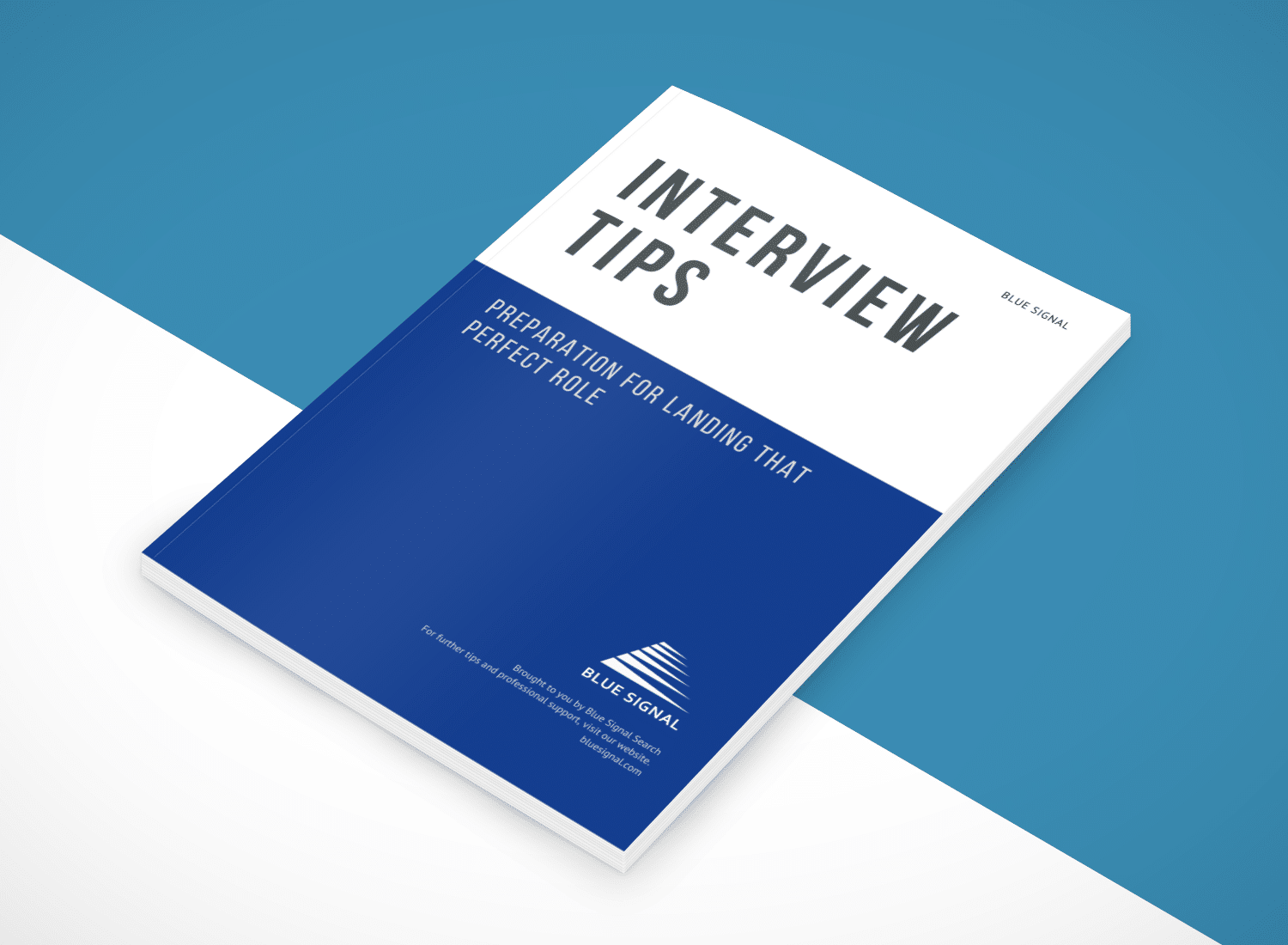In today’s job market, candidate experience is everything. In order to find and acquire the best of the best talent, companies must learn how to market themselves as employers. Unfortunately, many don’t know where to begin. With this shift from employers having their pick, to being a candidate-driven market, mistakes are being made that are costing employers good candidates.
With the power in their hands, candidates are prioritizing their wants and needs. Flexibility is now a necessity – in both working hours and working models, whether that’s remote options or 4-day work weeks. Candidates crave independence – they want to be given tasks and trusted to carry them out with minimal oversight. Last and certainly not least, benefits, perks, and compensation are paramount. 401K matching, covered healthcare for dependents, and unlimited PTO are becoming essentials in employee offerings.
Today’s candidates are well-informed. They know what employers are capable of offering their employees, and won’t settle for less than what they want. This makes the interview process crucial. It’s a company’s first impression, and can make or break a new hire depending on how it’s handled. To arm yourself and your company with knowledge, it’s important to know where the process breaks down and how to fix it. Based on Blue Signal’s own research, here are the top six interviewing mistakes, and how to avoid them.
#1 – Lengthy or Overly Intensive Application Process
61% of poll respondents said that the top reason they dropped out of the interview process was because it was needlessly long and/or intensive. This is an all-too-common mistake. Sometimes employers have a candidate attach a resume, then route them to their in-house applicant tracking system that has them manually fill in all of the same information. Others send applicants through rigorous rounds of interviews, where candidates find themselves repeating the same answers to interview questions, just to different hiring authorities.
The solution is simple. To avoid the mistake of losing candidates at the application stage, keep the process short and sweet. Invest in software or platforms that can parse and auto fill forms from a resume’s upload. Leverage more intuitive ATS systems. Weed out underqualified applicants on the front end by adding qualifying questions that allow you to skip over those that don’t meet the minimum requirements. Finally, make sure to organize and structure your interview process. Give your hiring managers the right questions to ask, make sure they are sharing their notes with the next round of interviewers, and give them the authority to cut people out of the process without wasting anyone’s time.
#2 – Not Getting True Insights From Interviews
21% of respondents cited that the interviews themselves were the problem. Many people felt as though the interviews lacked true insight into the role; that the process just went through the motions rather than forming a connection. Interviewers were using cliché questions that didn’t help qualify or disqualify candidates, and the candidates could tell. It seemed as though the information these queries provided were unhelpful to inform a hiring decision, since these candidates would leave only to be called back and repeat the process all over again.
To avoid these common mistakes, the interview process should always be tailored to the role. Streamline by cutting out the fluff. For instance, if it’s a technical role, consider making an early stage of the interview process some sort of comprehension test. You don’t need to ask how they work on a team if the role isn’t collaborative. And unless the role will be reporting in through HR, it’s okay to wait to have the candidate meet with the HR Director till after they are extended an offer of employment. This method saves time, and gets right to the point!
Also, be sure to arm your interviewers with strong interview questions that help provide true insights into the candidate’s capabilities. Oftentimes, leadership isn’t trained on interviewing best practices and are left to guess at it. Once they are given the proper tools, assign teams of 2-3 people to be decision makers and empower them to make the final call. This way, there won’t be too many cooks in the kitchen when it comes to picking who to hire.
#3 – Inaccurate or Incomprehensive Job Descriptions
Next, we found that 13% of our LinkedIn audience stated that inaccurate or incomprehensive job descriptions made them bow out of the interview process. Your job description is an applicant’s first insight into your company culture, the job’s responsibilities, and is a huge tell for how you will perform as an employer. Worse yet, candidates that are in the interview pipeline may later find that the job description they read online has little to do with the role their interviewers are describing – causing deep distrust and almost certainly a candidate falloff.
To sidestep these job description related mistakes, make sure that whoever creates the job posting is working closely with the hiring manager. The understanding of the role, the department, its leadership, and its main goals should be one and the same. The job description should accurately represent the needs of the job so that a candidate can make an informed decision when applying, interviewing, and accepting a job offer. The more comprehensive these main points, the better prepared and aligned the applicant pipeline will be.
Actually, job descriptions should be seen as an opportunity for employers. They give you a chance to brag about your company and teams, and should make a candidate eager to join. Not to mention, the last thing you want is to start back at square one when it comes to a hire. Nothing could be worse than a candidate showing up on their first day – after all that time, money, and resources put into their acquisition, onboarding, and training – only to be surprised at the actual job in front of them. Reduce your turnover; improve your job descriptions.
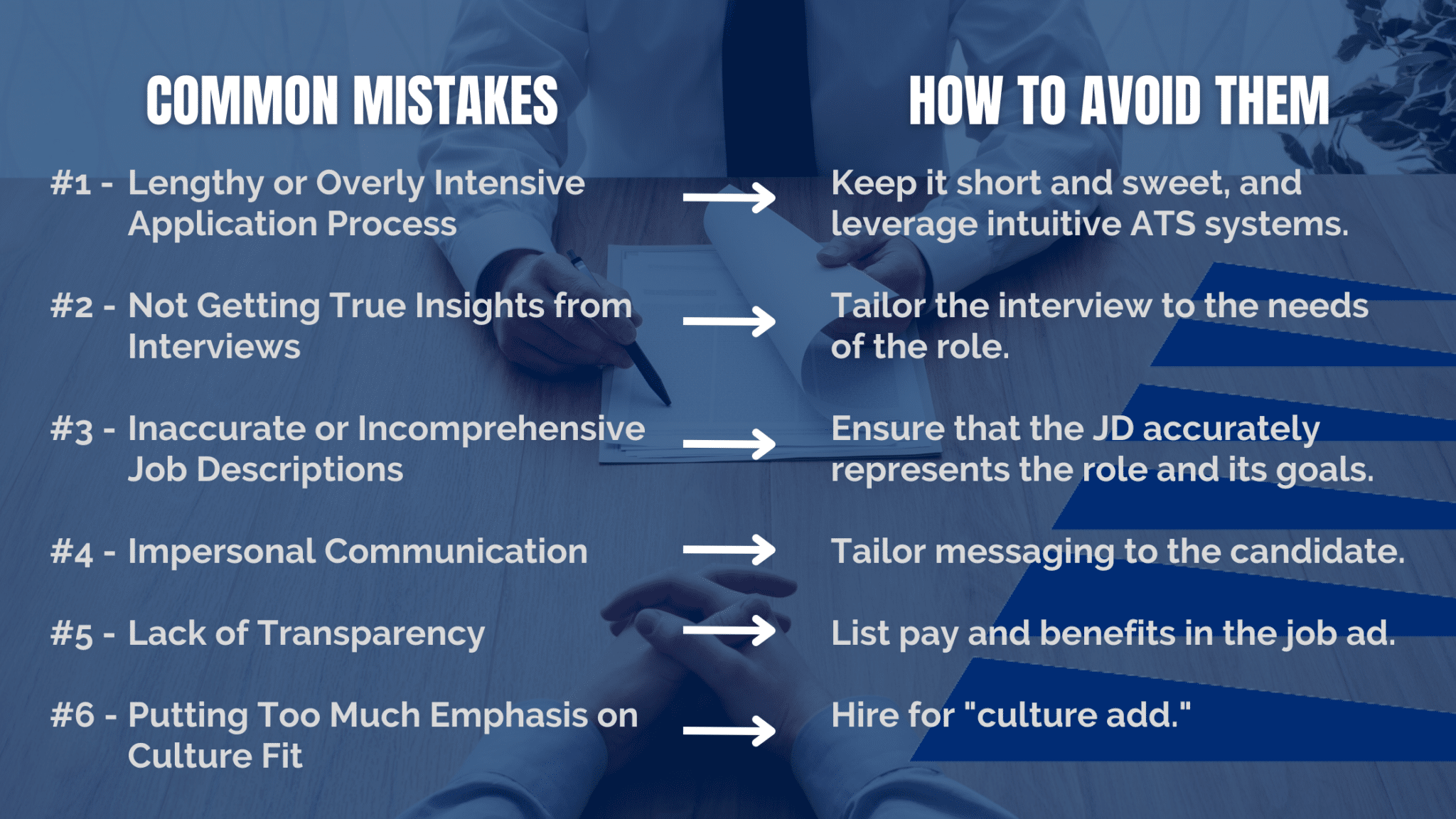
#4 – Impersonal Communication
Many respondents also noted that the impersonal communication surrounding the interview process turned them off to prospects. Copied and pasted scheduling invites come across lackluster, and don’t compare to a thoughtfully written note. Especially in larger organizations, hiring messaging can treat people like numbers, and come off almost robotic in tone. As talent acquisition teams communicate with their large applicant pool, a lot of heart can be lost in translation, and can leave a candidate wondering, is this how it would feel like working for you, too?
By tailoring communications to the candidate, you can avoid these common mistakes. Use their names every chance you get. When passing them along to someone else in the process, make sure to give warm introductions. If possible, reference things that may have come up in conversation or things that stood out to you in their profile. A simple, “Hey – how was that kayaking trip you said you had planned for the weekend?” or, “wouldn’t you know it, my spouse went to the same college as you!” can go a long way. By giving them the same courtesy as you expect in follow up and thank you notes, personalizing communications can strengthen your interview process.
#5 – Lack of Transparency
Unfortunately, several candidates feel that there is lack of transparency in the interview process. Leftover sentiment from the employer-driven job market has affected candidate management into today, where employers feel the need to safeguard their offerings. Leaving compensation, benefits, and policies out of job postings leaves too much room for speculation, and results in a lack of trust in a potential employer.
As it stands, employers must start adding these elements to their job postings to remain competitive in the hiring market. Not only is pay transparency legally required in many states, it will also give companies better aligned candidates whose pay expectations are met by the job at hand. If your compensation range is out of the candidate’s target, it’s unlikely they’d make it past the compensation conversation anyway.
Additionally, it’s important to destigmatize candidates asking questions surrounding benefits during an interview. It’s typically seen as taboo or bad form when a candidate asks about benefits, time off, workplace policies, and perks during an interview. However, it doesn’t all need to be a test. This could be a deciding factor for many potential hires. At any given time, active candidates may be entertaining more than one opportunity. Many people have strong must-haves in these areas – especially those with families, differing healthcare needs, and those looking to retire. By being transparent with benefits, employers can make sure their offerings align with a candidate’s needs early on in the process. It will attract those who fit the bill, and cut out those who don’t. In essence, this is just good time savings.
#6 – Putting Too Much Emphasis on Culture Fit
Finally, it’s important to avoid mistakes made in the name of “culture fit.” Our audience cited several instances where in an interview, they got the sense that if they didn’t fit into the culture, they wouldn’t get the job. Because it seemed as though the role would be awarded due to popularity, and not on merit, it made these candidates shy away from the company altogether. Essentially, hiring managers may lose out on excellent hiring opportunities just because they are looking for someone who fits their team’s mold.
Many employers probably don’t even realize they are making hiring decisions based on unconscious biases, but unfortunately the idea of “culture fit” has perpetuated this bias time and time again. To avoid these types of mistakes, it’s good for hiring authorities to instead look for opportunities to “culture add.” Hiring people just like you, with identical backgrounds to those already on the team, will result in stale and recycled ideas. This can unwittingly result in a sounding board rather than a diverse-thinking team. To ensure your company continues to innovate, make sure to hire for culture add. Instead of mirroring the existing culture, these candidates will bring diversified experiences, which can lead to fresh new ideas!
Learning and Growing from Common Interviewing Mistakes
All in all, the overall lesson here is to treat prospective hires as though they were already on board. Respect their time, get on their level, and cut to the chase. Candidates are assets! Treat them well and they will bring success. Don’t, and you may lose out on your next great hire.
Competing in today’s candidate-driven market can be tricky. Invest in your employer branding, and that value will return 10-fold in the clients you’ll attract. Not sure where to start? Recruiters are the best marketers when it comes to the candidate audience. Working with a recruiter is a great way to boost your employer branding, break into the marketplace, and expand your reach. Contact Blue Signal today to see how we can help you navigate the interview process.
